-

Organic Pure Natural Lavender Essential Oil For Massage Aromatherapy
Benefits
(1) Lavender oil may help with skin whitening and aid in the reduction of blotchiness and redness.
(2) Because lavender oil is mild in nature and fragrant in smell. It has the functions of soothing, careful, analgesic, sleep aid and relieve stress.
(3) used to make tea:it has many benefits such as calming, refreshing, and preventing colds. It also helps people recover from hoarseness.
(4) used to make food:lavender oil applied to our favorite food, such as: jam, vanilla vinegar, soft ice cream, stew cooking, cake cookies, etc.Uses
(1) Taking a healing bath by adding 15 drops of lavender oil and one cup of Epsom salt to the bathtub is another effective way to use lavender oil to improve sleep and relax the body.
(2) You can use it around your home as a natural, toxic-free air freshener. Either spray it around your home, or try diffusing it. It then acts on the body through respiration.
(3) Try adding 1–2 drops to your recipes for a surprising flavor booster. It’s is said to pair perfectly with things like dark cocoa, pure honey, lemon, cranberries, balsamic vinaigrette, black pepper and apples. -
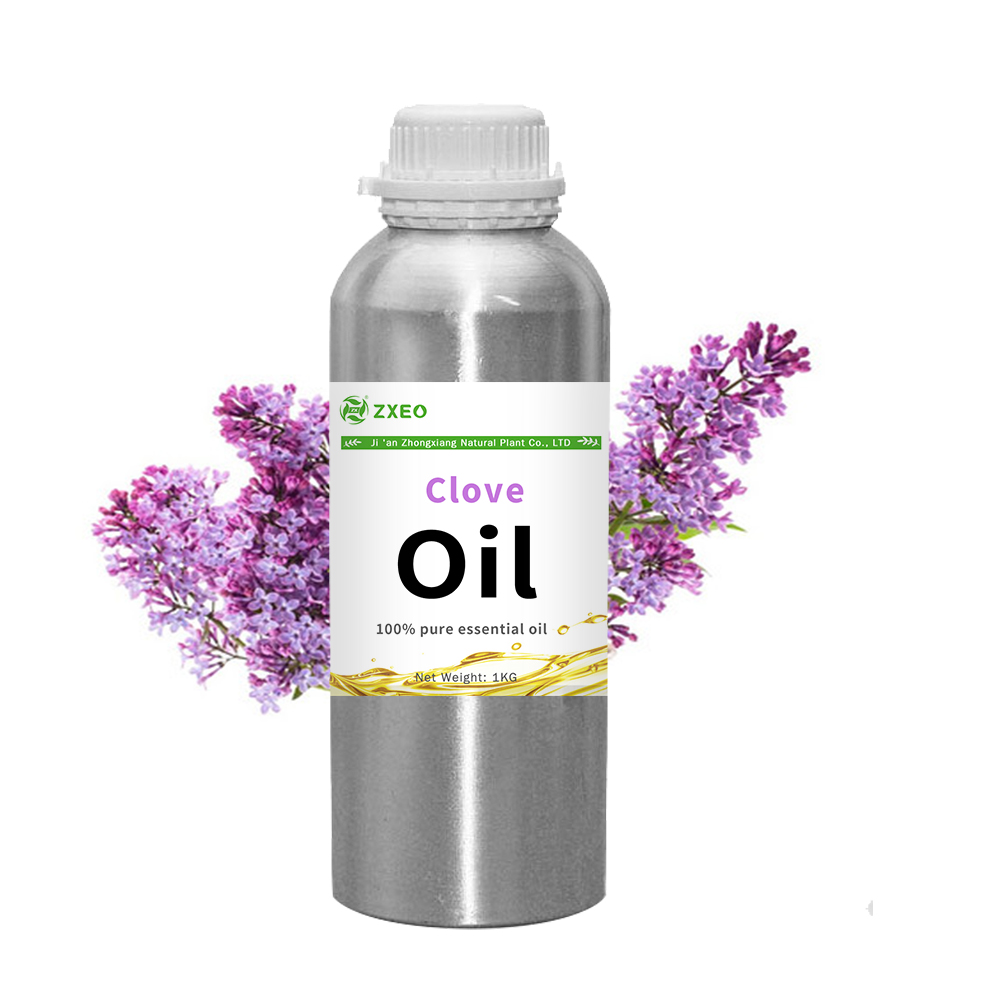
Aromatherapy Pure Natural Clove Essential Oil For Hair and Body Care
Benefits
Revitalizes and warms. Helps ease occasional stress and fatigue. As a flavoring for foods and teas and as an herbal oil used topically to treat toothache and more rarely to be taken orally to treat gastrointestinal and respiratory complaints.
Uses
(1) Dilute in a carrier oil and lovingly massage into sore muscles and joints.
(2) Inhale the aromatic vapors directly from the bottle, or place a few drops in a burner or diffuser to fill a room with its scent.
(3) Add 5-10 drops to hot bath water, or sprinkle into shower steam before getting in for an at-home spa experience. -
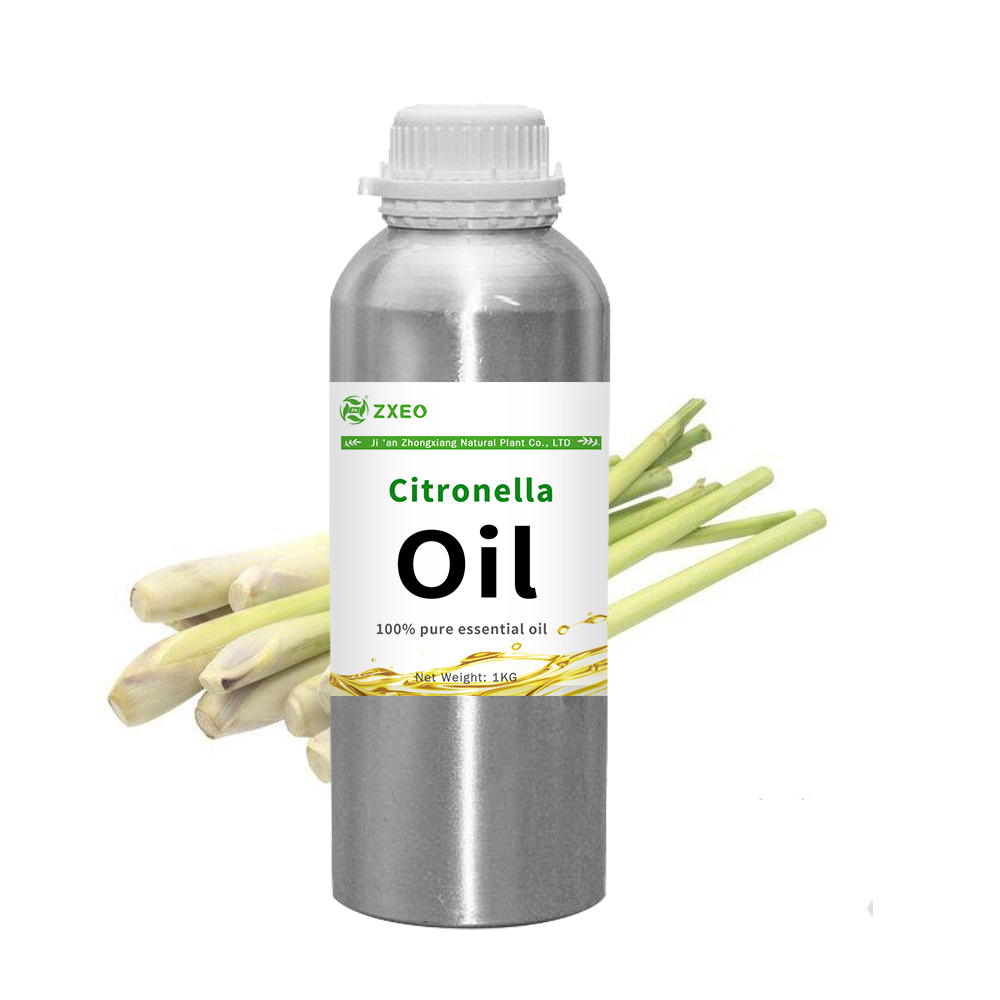
Pure and Natural Citronella Essential Oil For Aromatherapy, Massage
Benefits
(1) Citronella oil can raise the body temperature and increase sweating in the body, thus to achieve the effect of eliminating bacteria and viruses.
(2) Citronella oil kills fungus and inhibits fungal growth. This is very useful in countering fungal infections in the ear, nose and throat region.
(3) Citronella oil can be used to help clean your kitchen, bathroom or household surfaces without the need for harsh chemicals.Uses
(1) You can diffuse the oil in your home or backyard just like a candle using a diffuser.
(2)You can add a few drops of citronella essential oil to your bath, shampoo, soap, lotion or body wash. -
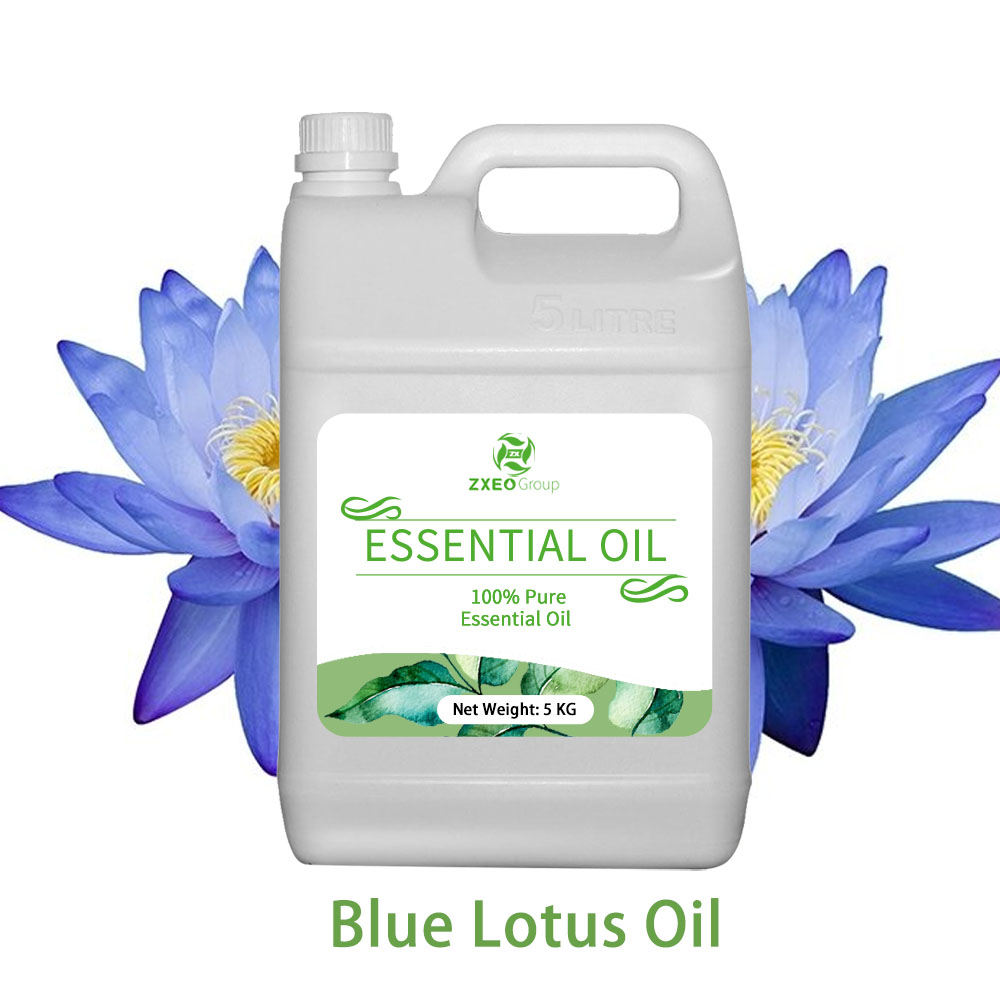
Blue Lotus Flower Essential Oil At Best Prices Candle Making
Blue Lotus is a potent aphrodisiac and synergizes well with most essences in product development. The energy that blue lotus presents are very unique vibrations: a playful, sensual essence which opens the heart, third eye and allows inner wisdom to shine. Blue Lotus aromatic notes and energetic are quite unique – calming, unifying, centering – enhances the mood, clears the mind and strengths connection to source. Simply intoxicating essence, considered one of the most rare-precious extracts.
Benefits
The Blue Lotus Absolute essential oil is extracted from the flower in the most delicate manner possible to retain and capture its actual essence. It is a popular oil massage therapist. It acts as a great massage oil that soothes the body and skin from within. Furthermore, Blue Lotus tea is also liked by many, and it is used in making alcoholic beverages as well. Some of the benefits of using this Blue Lotus Absolute essential oil are –
- When used in massage therapy, the smell of the Blue Lotus Absolute calms the internal and external senses and uplifts the moods.
- It makes perfumes, air fresheners, and even scented candles. It is an active ingredient in these products due to its unique smell.
- It promotes the feeling of euphoria and bliss and aids to some sexual health-related issues such as the absence of sex drive and the problems related to erectile dysfunction etc.
- It is a widely used essential oil in aromatherapy. It is used to provide relief to the individual suffering from mental stress, anxiety, etc.
-
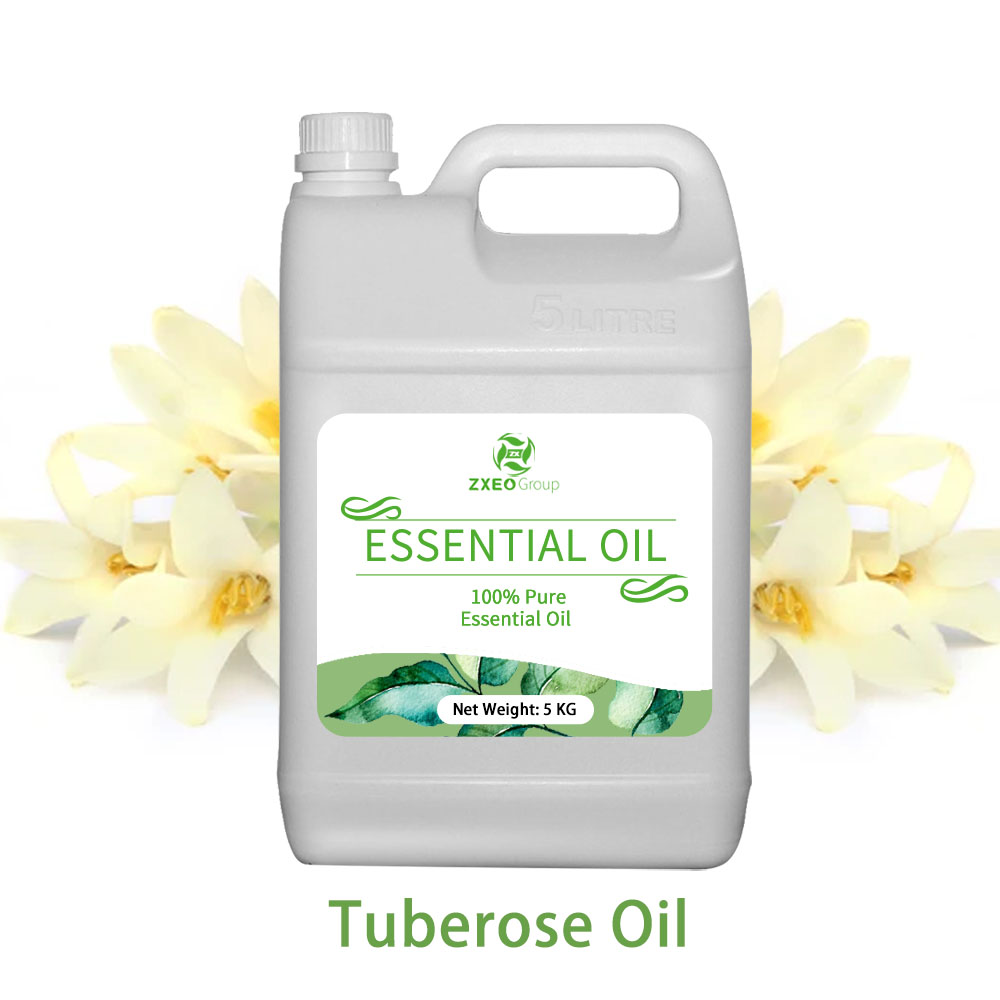
Tuberose Essential Oil for Multi Purpose Uses Oils Wholesale Price
Tuberose oil is an exquisite, highly fragrant floral oil that is most often used for perfumery and natural fragrancing work. It blends beautifully with other floral absolutes and essential oils, and it also blends well with essential oils within the wood, citrus, spice, resinous and earthy essential oils.
Benefits
Tuberose essential oil can treat the onset of nausea to avoid the uncomfortable sensation. It is considered an effective remedyfor nasal congestion. Tuberose essential oil is an effective aphrodisiac. It helps to prevent infections of the skin. Its antispasmodic property is also beneficial for spasmodic coughs, convulsions, as well as for reducing muscle tension.
Skincare- It has anti-fungal and anti-bacterial properties that help to treat skin problems like acne. It is also a good remedy for cracked heels due to its healing properties. It smoothes fine lines and wrinkles as well as augmenting the moisture binding capability of the skin. As a result, skin looks younger and suppler.
Haircare- Tuberose oil helps to repairs damaged hair and spilt ends. It is used for hair fall, dandruff and hair lice due to its anti-dandruff and sebum controlling properties.
Emotional- It helps to calm people and give relief from stress, tension, anxiety, depression, and anger.
-
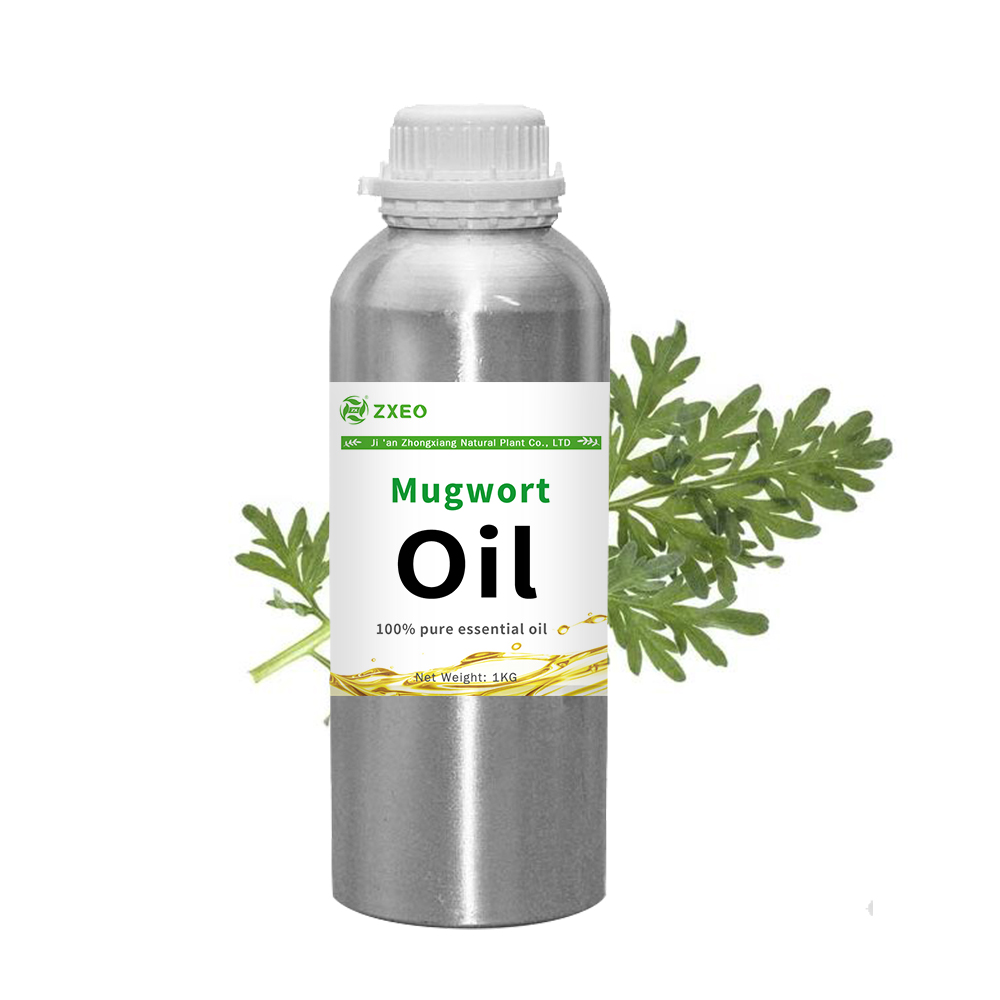
High Quality 100% Pure Natural Mugwort Oil For Health, Inflammation.
Benefits
(1) Mugwort oil is a strong relaxant. It has soothing effects on the brain and on the nervous system as a whole. As a result, it can prevent epilepsy and attacks of hysteria in people.
(2) Mugwort oil is extremely beneficial for women. It not only regulates your menstrual cycle, but also encourages a better flow of blood from the system.
(3) Mugwort oil is also good for your digestive system. It helps by stimulating the secretion of gastric juices and bile.Uses
(1) Take about 10 drops of massage shoulder and neck, can effectively relieve shoulder and neck pain.
(2) Take about 5 drops of massage the abdomen, can effectively promote the normal operation of the digestive system.
(3) Take about 20 drops to massage the tail vertebra and both sides of the spine, or take about 5 drops each to massage the soles of the foot together with a foot bath. -
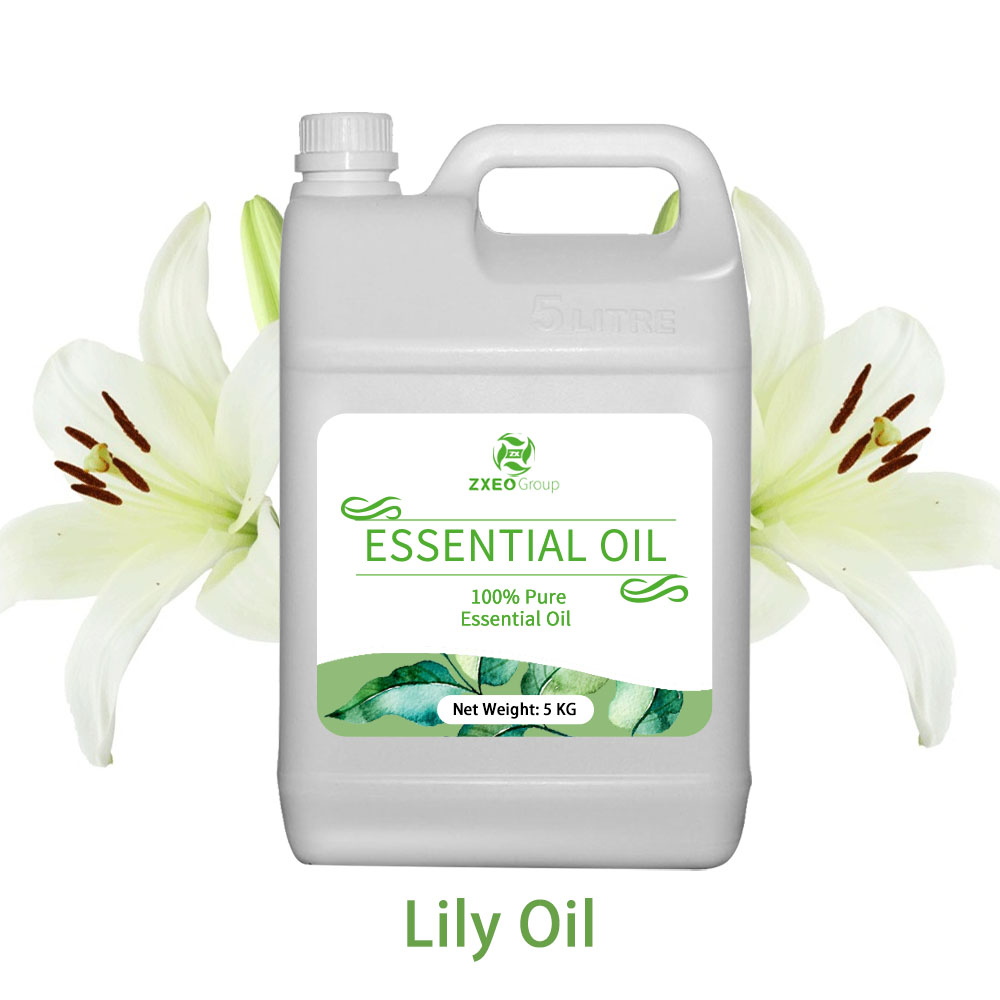
Diffuser Lily Essential Oil Aromatherapy Ferfume
Lily is popularly used in wedding rites as decorations or bridal bouquets. It has sweet scent and delightful blossoms that even royalties are spotted using it for their special events. But Lily is not all aesthetic. It also contains in it compounds that give it a number of health benefits which made it a famous source of medicine since ancient times.
Benefits
Lily essential oil was used since ancient times to treat several cardiovascular diseases. The oil’s flavonoid content helps ease blood flow by stimulating the arteries which control and manage the blood pressure. It is used for treating valvular heart disease, cardiac debility, and congestive heart failure. The oil can also boost the muscular function of the heart and cure irregular heartbeats. It also reduces the risk of heart attack or hypotension. The oil’s diuretic property helps in easing the flow of the blood by dilating the blood vessels.
The oil helps release toxins such as excess salt and water from the body by encouraging frequent urination.
Cuts and wounds can leave bad-looking scars. Lily essential oil helps treat wounds and skin burns without the nasty scars.
Lily essential oil’s ability to promote good blood flow helps regulate the temperature of the body thus helping reduce fever.
-
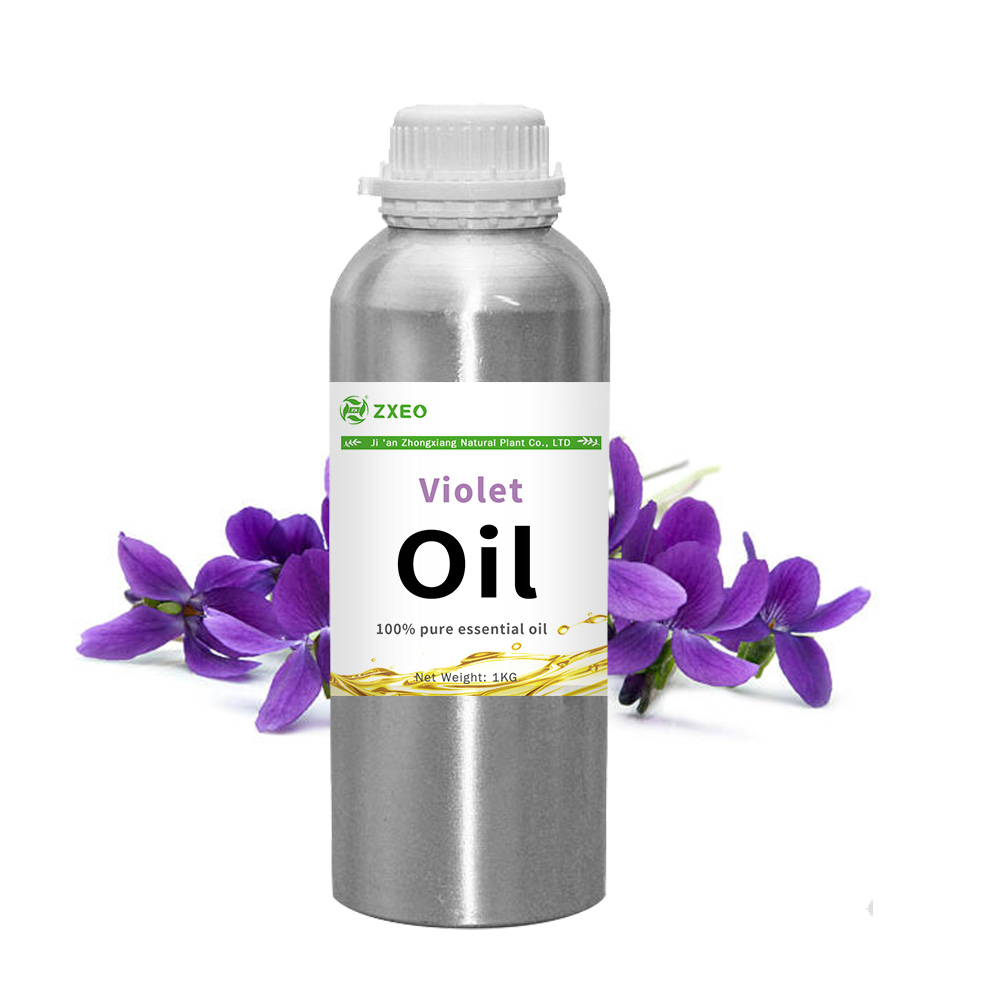
100% Pure Natural Violet Oil For Massage, Inflammation, Skin Care, Body
Benefits
(1) Natural way to treat sexual dysfunction.
(2) Reduce anxiety, physical and emotional signs of stress.
(3) It is ideal oil to use on dry skin and can help soothe as well as heal inflammation and thread veins.
(4) It is used to treat various skin ailments, such as eczema, acne, and psoriasis.
(5) Help ease swollen muscles, when massaged into joints.
(6) Promote better sleep.
(7) Treats the common cold symptoms, such as blocked sinuses and sore throatsUses
(1) Pain Reliever: Apply 4-5 drops to a moist warm compress and place over the aching muscle or joint. Reapply as needed.
(2) Inflammation: Massage a few drops into the inflamed area. Repeat 3-4 times a day as needed.
(3) Headache: Put a few drops in an oil diffuser or burner and have a seat near it. You can also use a pot of boiling water with a few drops of violet oil in it. Relax and breath normal and the headache will ease up.
(4) Insomnia: Place a few drops in your oil diffuser and have it on in the room when you sleep.
(5) Bee Stings: Mix 1 drop violet oil and 1 tablespoon white vinegar. Soak a small cloth or cotton ball in the mixture. Then place on bee sting until pain subsides. -
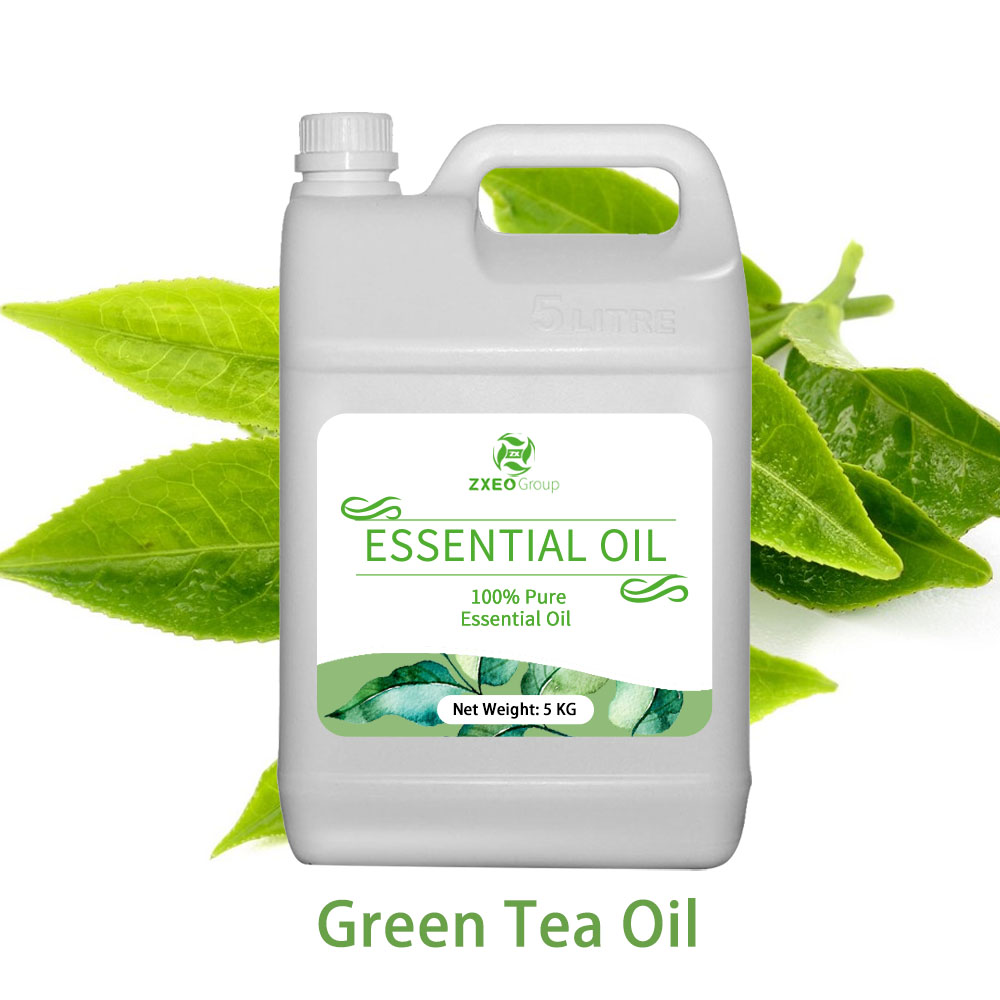
Green Tea Essential Oil Wholesale Price 100% Pure Natural Green Tea Oil For Skin Care
Green tea essential oil is a tea that is extracted from the seeds or the leaves of the green tea plant which is a large shrub with white flowers. The extraction can be done by either steam distillation or cold press method to produce the green tea oil. This oil is a potent therapeutic oil that is used to treat a variety of skin, hair and body related issues.
Benefits & Uses
Green tea oil contains anti-ageing compounds as well as antioxidants which makes the skin tighter and reduces the appearance of fine lines and wrinkles.
Green tea oil for oily skin works as a great moisturizer as it penetrates into the skin quickly, hydrating it from within but does not make the skin feel greasy at the same time.
The anti-inflammatory properties of green tea coupled with the fact that the essential oil helps to increase the elasticity of the skin make sure that the skin heals from any acne-breakouts. It also helps lighten blemishes on the skin with regular use.
The fragrance of the green tea essential oil is strong and soothing at the same time. This helps calm your nerves and stimulates the brain at the same time.
If you are suffering from sore muscles, applying warm green tea oil mixed and massaging it for a couple of minutes will give you instant relief.
Safety
Since green tea essential oils are quite concentrated and potent in nature, it is always advised to mix the oil with a carrier oil such as almond oil or coconut oil. Also, do a patch test before you apply the oil onto your skin to check for allergies. If you are pregnant, nursing or under medical care, always consult with your doctor before using any essential oil.
-
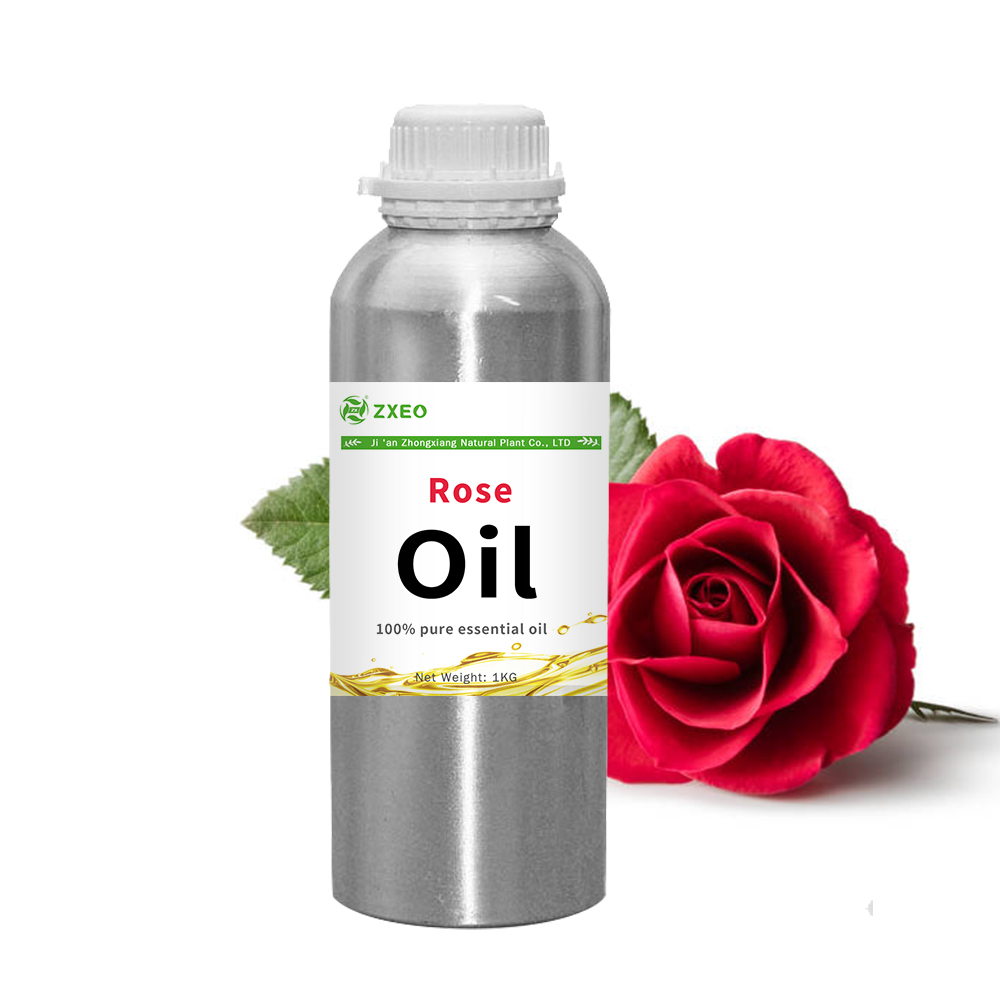
Aromatherapy Essential Oil 100% Pure Natural Rose Oil For Face
Benefits
(1)help alleviate anxiety, stress and mild depression
(2)treat anxiety
(3)ease pain relief
(4)relief from menstrual discomfort
(5)ease depressive symptomsUses
(1)Apply 2-3 drops onto your tace after cleansing and before moisturizing for an extra boost of hvdration.
(2)Add Rose Oil to any moisturizer (cream or lotion) to rejuvenate and balance skin and improve texture.
(3)put some drops of rose essential oil into your evening bathtub, in the diffuser, or just apply directly with a carrier oil on the chest, neck, and wrist to relax your sensory organs. -
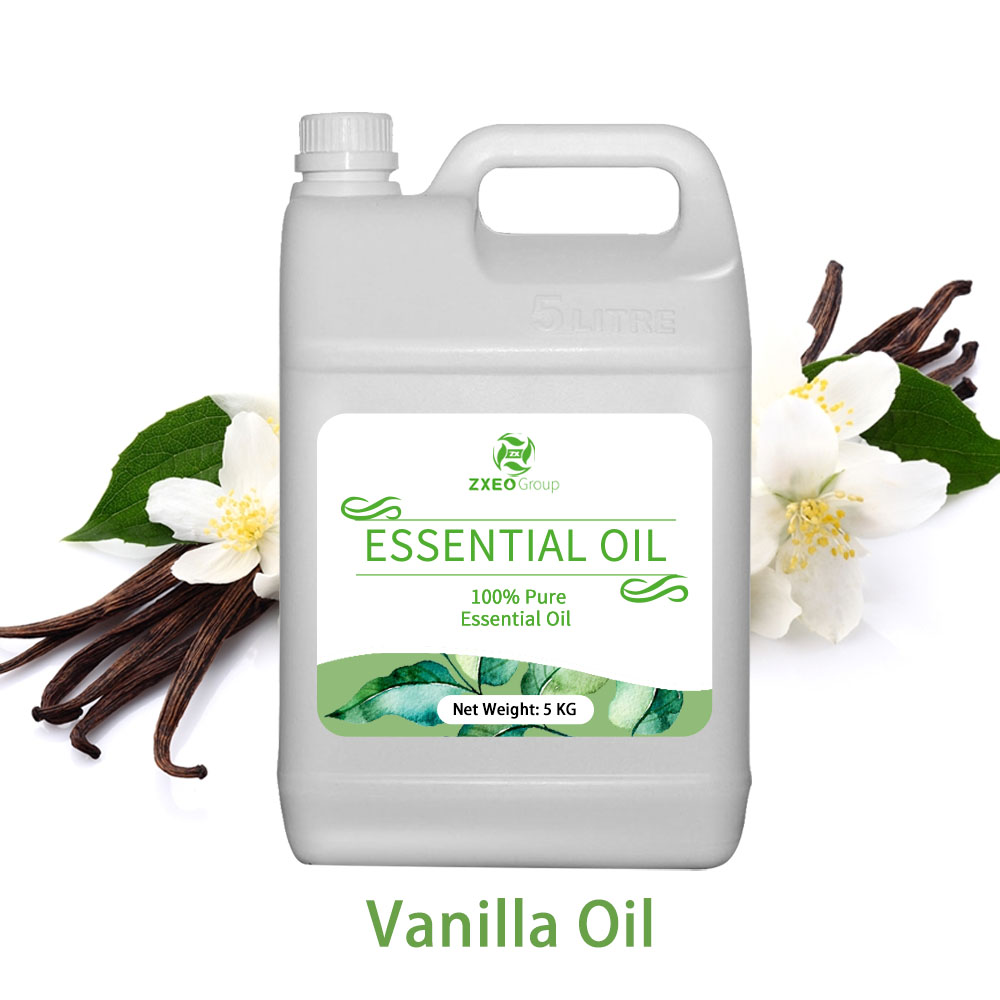
Vanilla Fragrance Essential Oil For Candle Making 100% Pure Natural
Vanilla is well known for its sweet luxurious enticing smell and it’s multitude of versatile uses around the world. While vanilla makes some delicious mouth-watering desserts, smooth refreshing sodas, and truly mesmerizing perfume scents, one of its absolute best uses by far is the endless list of both mental and physical health benefits vanilla oil brings to the table. Now conveniently available in Vitamin C cartridges for both the Aroma Sense wall fixture and handheld shower head, you can submerge yourself in all of these benefits on a daily basis.
Benefits
Vanillin, found in vanilla oil, is widely known for its antioxidant properties. Antioxidants combat free radical damage and promote restoration, helping to battle disease and revitalize skin with its profound anti-aging properties. Vanilla oil’s heavenly smell and proven ability to rejuvenate skin is why this remarkable oil has so often became a prime ingredient in many lotions and alternate topical treatments.
The benefits of vanilla oil are delivered by smell or into the bloodstream through skin absorption. Vanilla is effective in suppressing depression because vanilla’s uplifting fragrance stimulates a part of your brain, called olfactory, which is responsible for regulating mood. Neurotransmitters are then released and create a pleasantly uplifting effect, helping to combat insomnia and leaving you with a satisfying sense of peace and relaxation.
Vanilla oil is also a natural antibacterial and anti-inflammatory, proven in studies to help effectively prevent infection and inflammation. This makes vanilla oil a great choice for soothing burns and aiding in the treatment of acne. Utilizing natural oils that possess healing properties is important during today’s time when synthetic chemicals are often overused and can sometimes cause more harm than good.
-
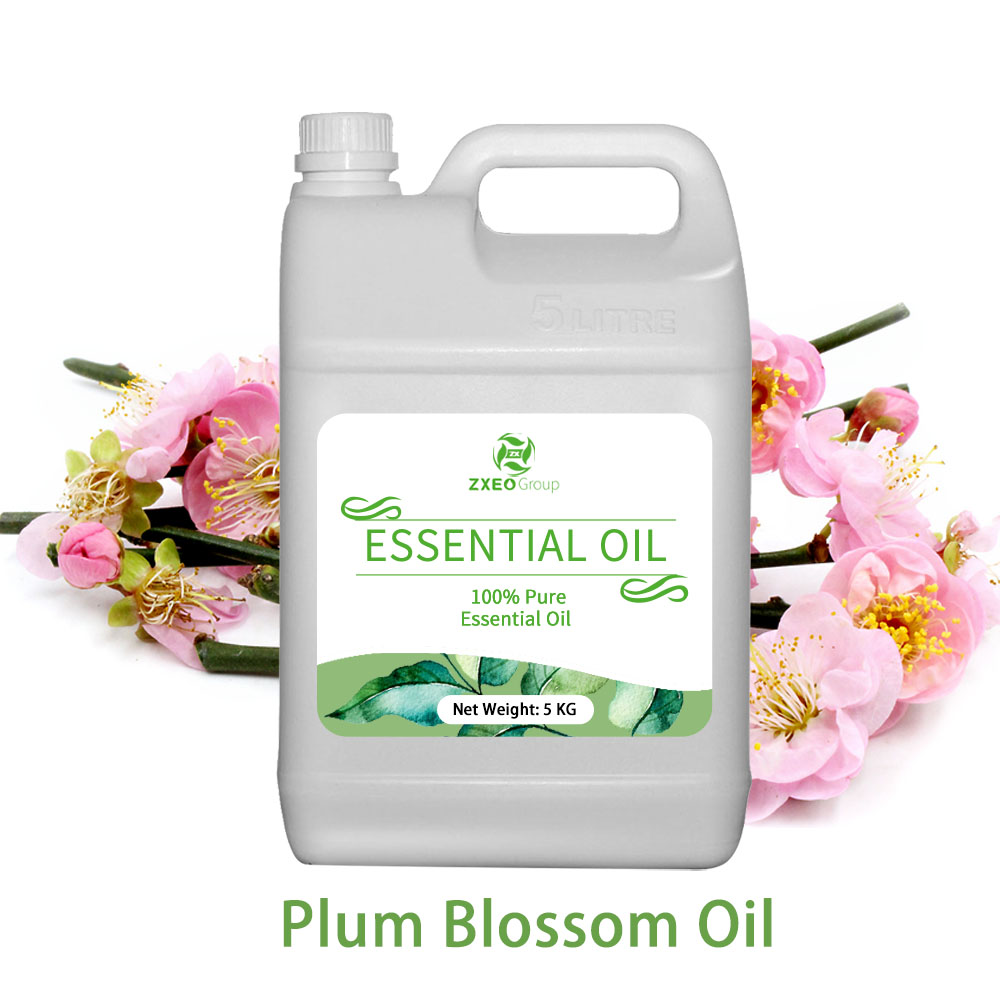
Plum Blossom Essential Oil For Skin Body Care
Plum oil is a hydrator and anti-inflammatory ingredient that brightens and plumps skin, protects against radical damage and oxidative stress, and aids in cellular repair, sebum production, and skin turnover. Plum oil is marketed on its own as an elixir, but is also found as an ingredient in some moisturizers and serums.
Plum oil has a host of skin benefits for such a lightweight oil, which make it a nutrient-rich daily treatment that can be used beneath heavier creams or serums. Its heritage comes from Asian cultures, most notably the south mainland of China, where the plum plant originated. Extracts of the plum plant, or prunus mume, have been used in traditional Chinese medicine for more than 2000 years.
Benefits
People to apply plum oil daily to clean skin. It can be used as often as twice per day, in the morning beneath makeup, and in the evening as part of your nighttime skin routine. Due to its light texture, plum oil pairs well with serums and moisturizers that are known for hydrating properties.
Because of its many hydrating qualities, plum oil is a great choice for the hair as well as the skin. Those with color-treated or dry hair will especially reap the benefits, as plum oil can be applied to hair post-shower (while still slightly damp) as a treatment to strengthen and moisturize stressed strands.

